The launched models of the new flagship iPhone line-up, iPhone 12, and iPhone 12 Pro went under the knife to investigate the internal layout and hardware differences of the 6.1-inch models. iFixit, a popular teardown expert, took apart both models and gives them a 6 out of 10 repairability score.
Apple has set a new and advanced industry standard in the new iPhone 12 series. Across the line-up, the company has powered the smartphones with an A14 Bionic chip for fast processing, 5G network support, Super Retina XDR display with four times more durable ceramic shield front cover protection, a new camera system with Dolby Vision support, and Night mode. The iPhone 12 is also given a new flat edge-to-edge design language like the 2020 iPad Pro, which improves the grip of the smartphones.
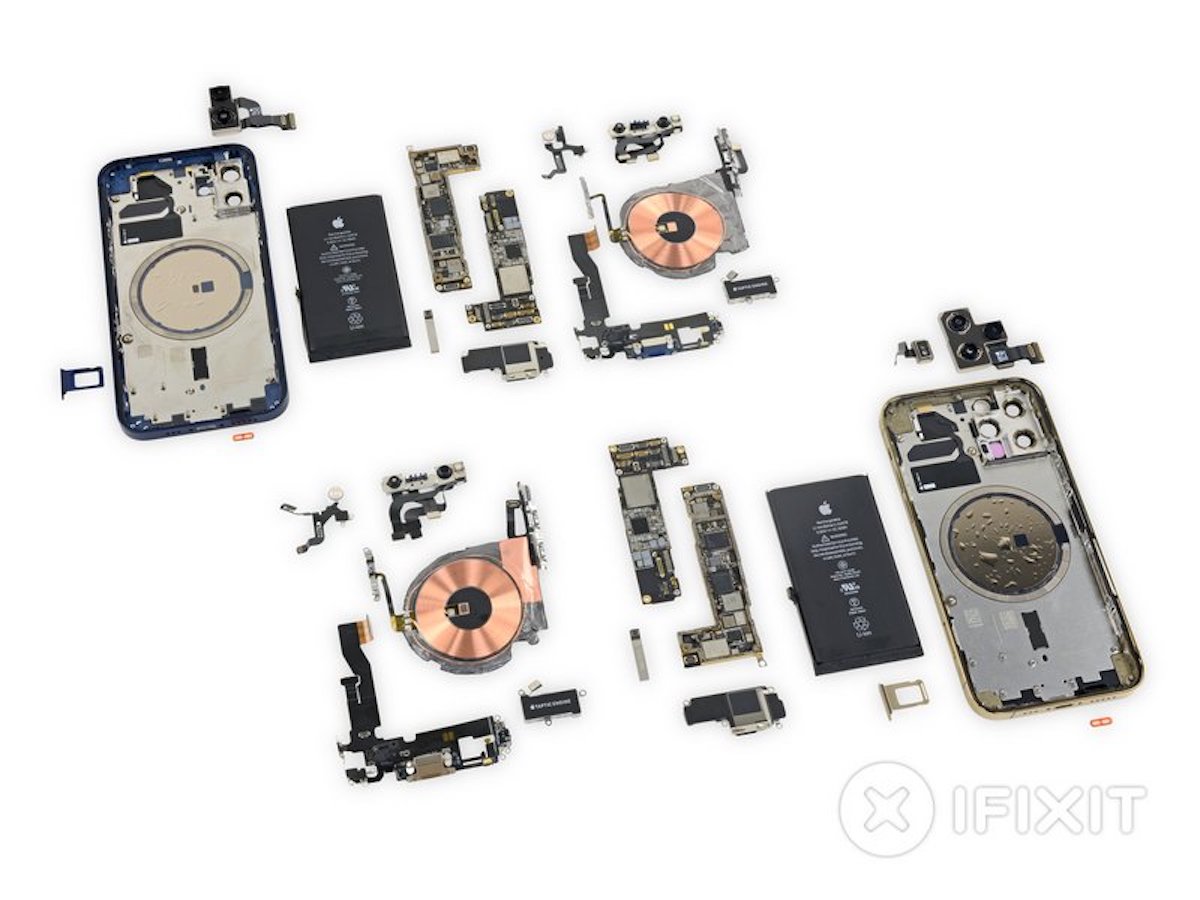
iPhone 12 and iPhone 12 Pro – Teardown
To investigate the new internal layout, hardware, and the differences between the smartphones, iFixit carefully took apart a blue iPhone 12 and a gold iPhone 12 Pro. Based on the ease of removing pieces and screwing them back, the technicians give a repairability score. Here are all the discovered internal hardware details:
Display and Camera Shield
- Unlike previous models, the new iPhones open from the right edge.
- The displays of standard 12 and 12 Pro work interchangeably.
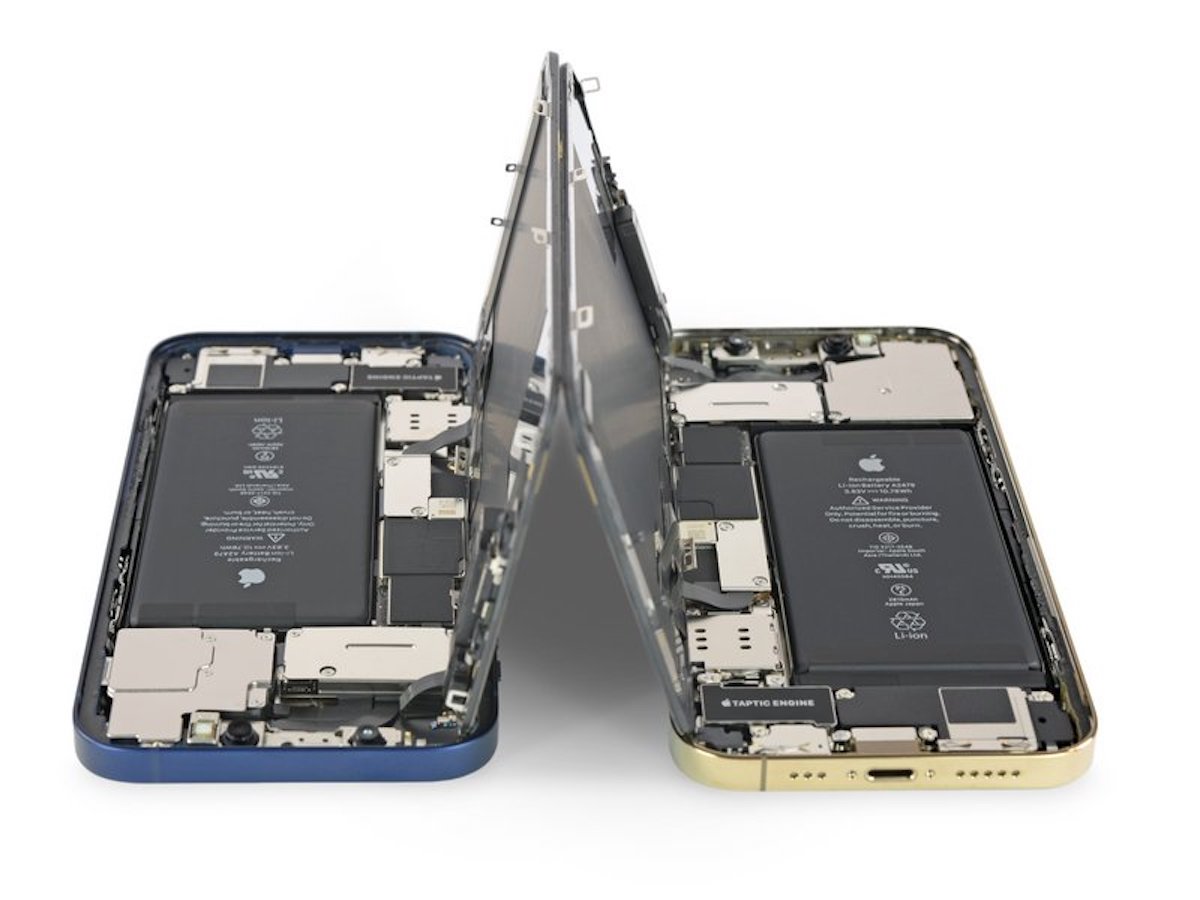
- On carefully removing the display panel using heat and force, the camera shields were the first to be taken apart. Under the camera shield of the Pro model are the camera module and LiDAR sensor and that same is filled by a plastic spacer in iPhone 12.
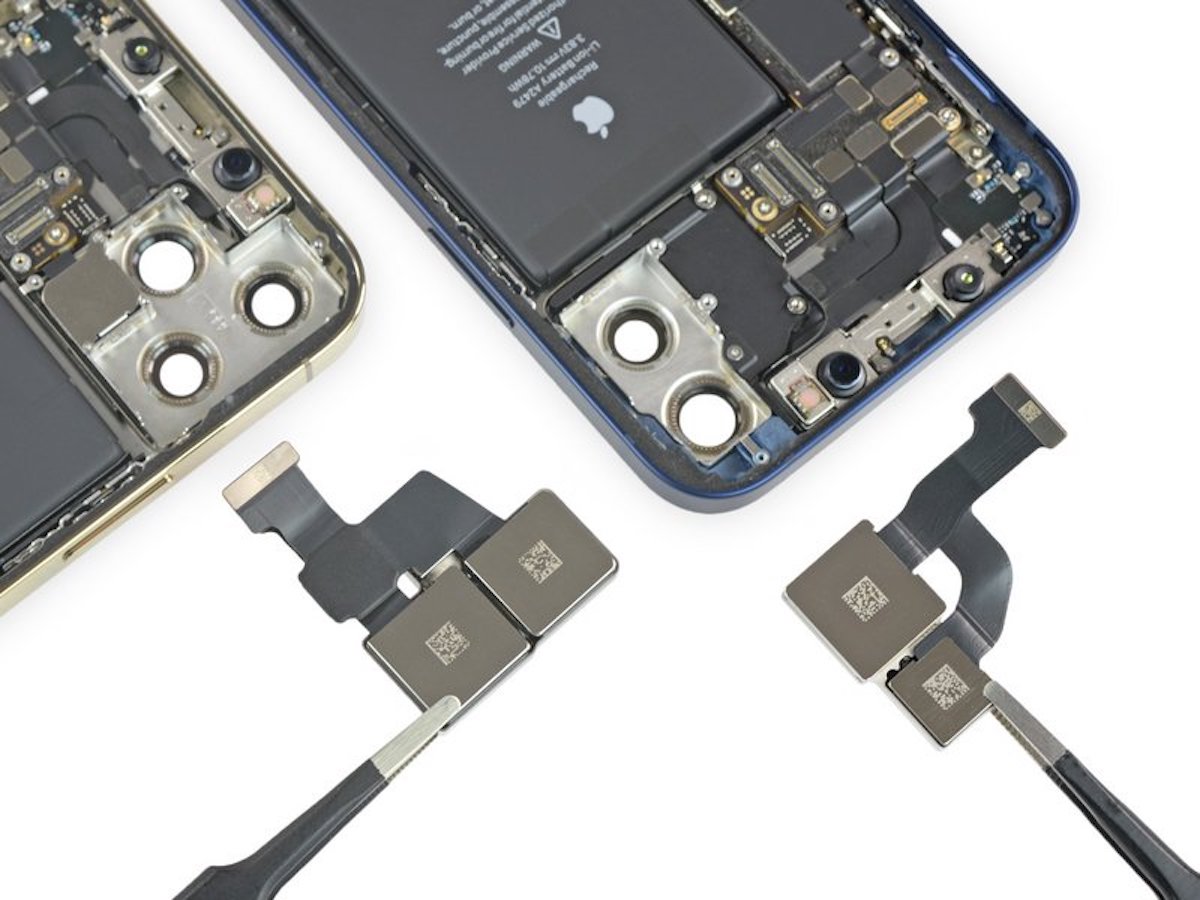
Speakers and Battery
- Battery, Logic board and SIM tray are on the opposite side than the previous iPhone models.
“The smoking gun is that logic board, which has grown enormously in size—probably to accommodate Qualcomm’s 5G chips—to the point where it no longer fits in its old home beneath the cameras.’
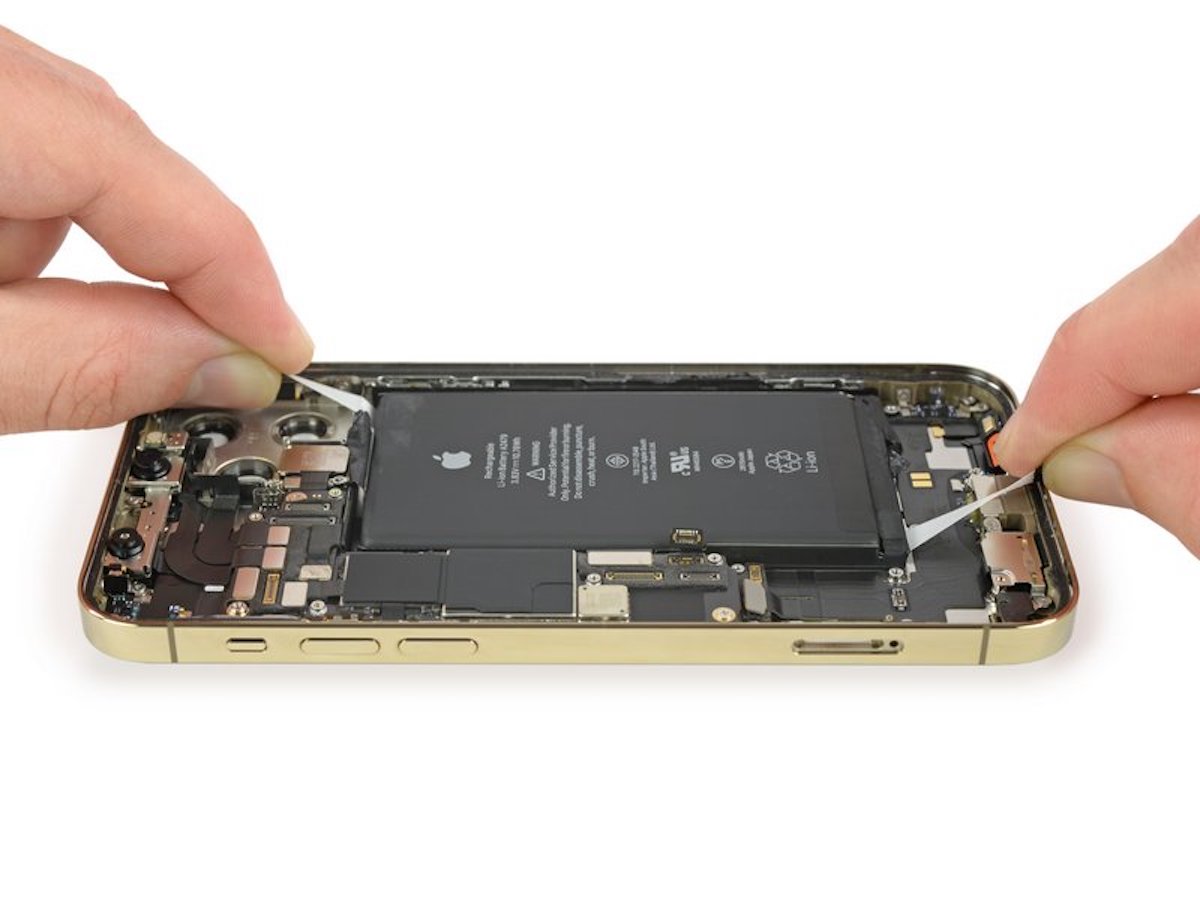
- Same 10.78 Wh battery in both iPhone 12 models and are interchangeable.
- Speakers have a new shape and are easy to remove because of the new orange rubber gaskets behind the grilles, instead of adhesive. “Since the speaker has to be removed for battery replacement, this is a thoughtful design and a win, repair-wise.”
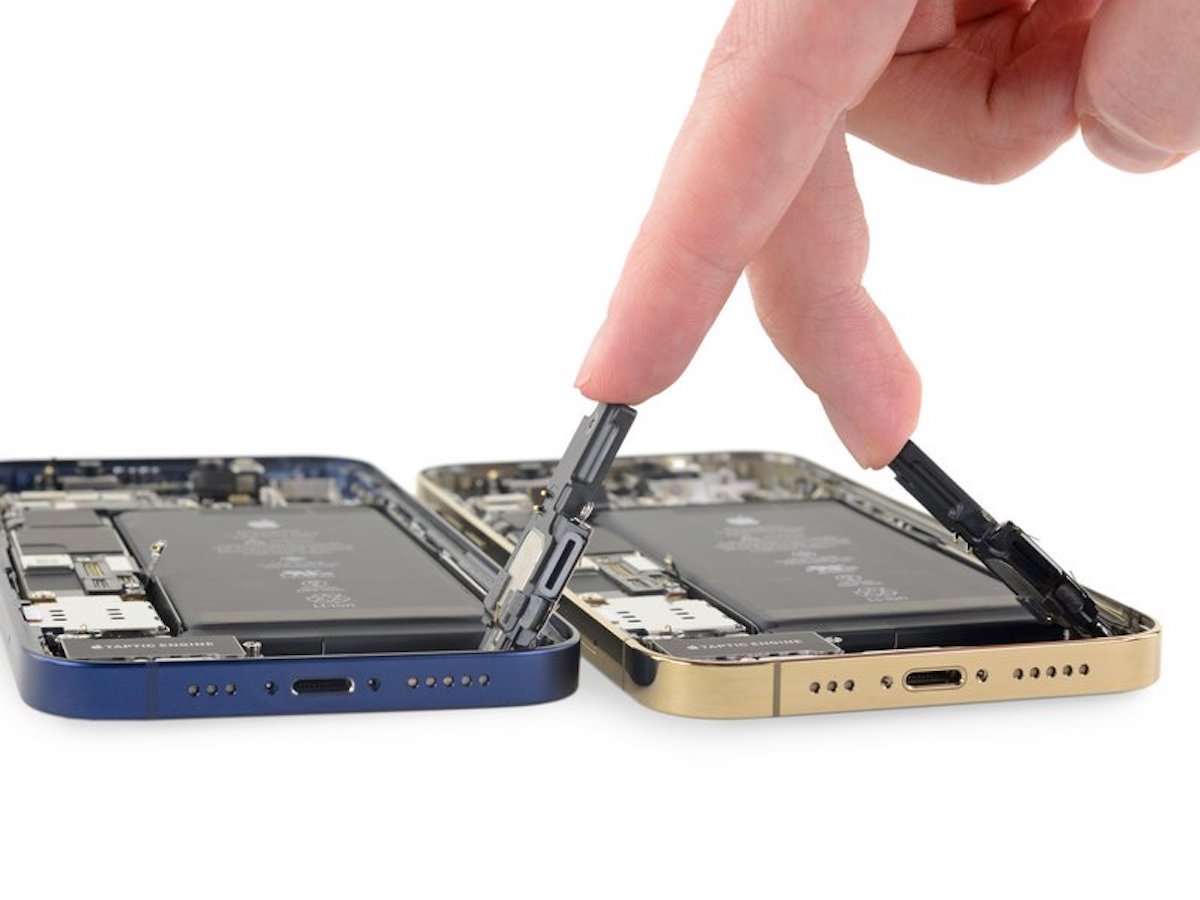
Taptic Engine and Logic Board
- The Taptic Engine in both 6.1-inch smartphone models is the same and works interchangeably. However, it is slightly smaller and thicker than iPhone 11’s.
“The 12-series Taptic Engine measures 22.25 mm x 9.48 mm x 3.56 mm, while last year’s variant (from the minty green iPhone 11, at left) comes in at 26.9 mm x 11.18 mm x 3.44 mm.”
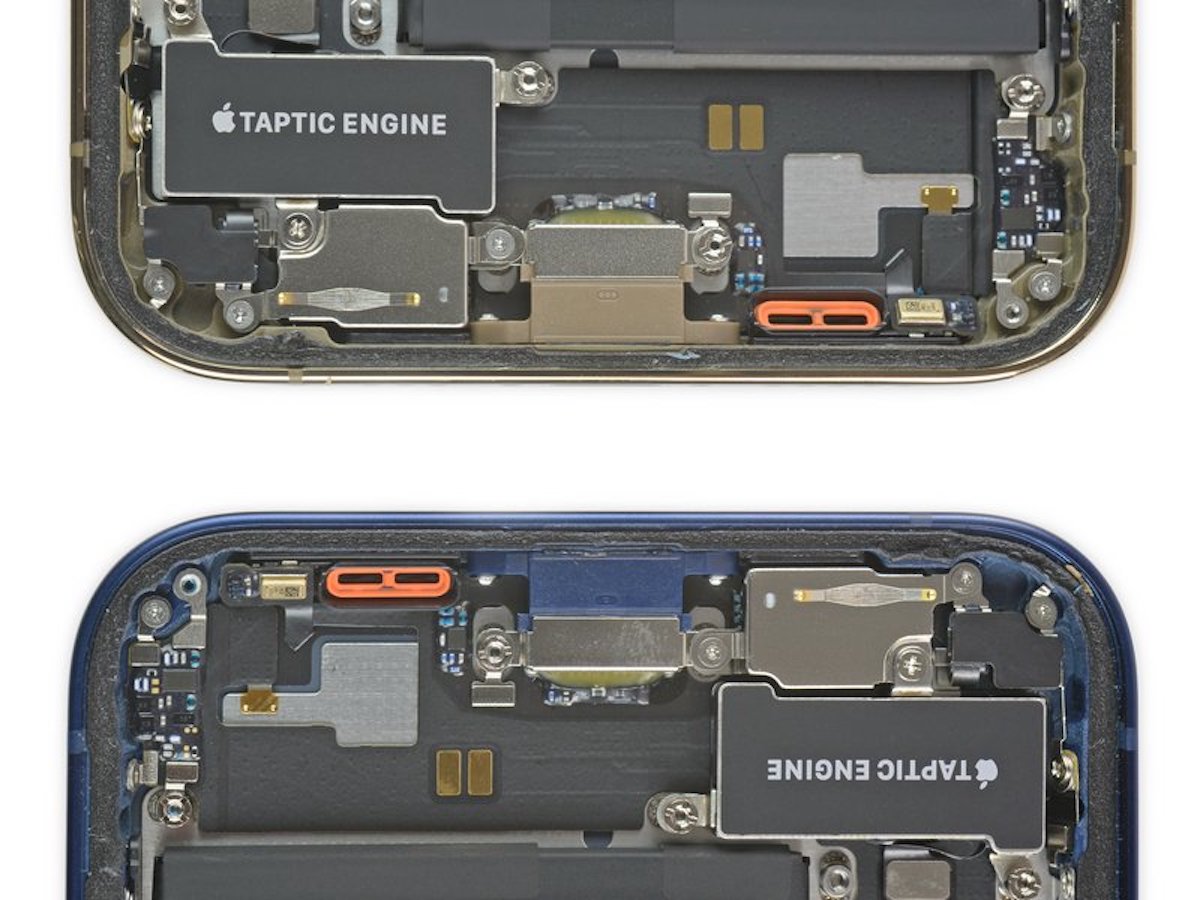
- The iPhone 12 and iPhone 12 Pro models have nearly identical logic boards with exception of few serial numbers. The logic boards house:
- A14 Bionic chip,
- (64 GB) storage,
- 5G and LTE transceiver,
- 5G modem-RF system and SMR526 intermediate frequency IC
- U1 ultra-wideband chip
- Avago 8200 high/mid power amplifier with integrated duplexer
- Apple APL109 4343S00437 PMIC
- 5G mmWave antenna modules *in iPhone 12 US models only
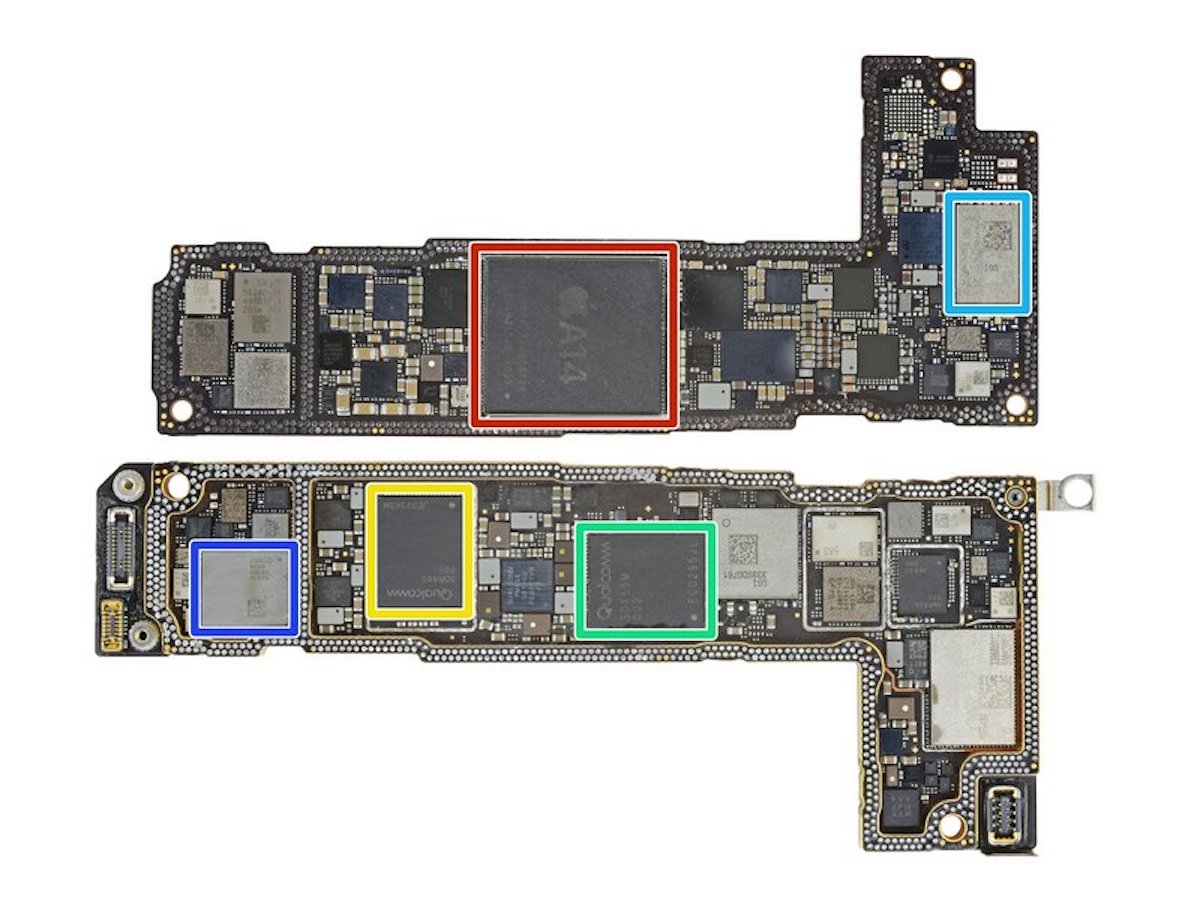
Others
- The Lightning connector assemblies, Face ID, flash modules, and other necessary parts are identical.
- 18 magnets to support MagSafe accessories.
Repairability Score of iPhone 12 and iPhone 12 Pro
The publisher’s technicians gave the iPhone 12 and iPhone 12 Pro models 6 out of 10 repairability score.
- Display, battery, and other components are easily accessed and repaired.
- More screws and water-proof measures complicate repairs.
- Glass front and back can not be repaired and will have to be replaced with an entirely new chassis.
Read Also:
- Teardown of MagSafe wireless charger reveals copper charging coils, simple board and more
- How to manually change iPhone 12 5G settings to always on
- iPhone 12 camera specifications; Pro Max takes the crown
- How does iPhone 12 Pro’s ProRaw works
- MagSafe accessories for iPhone announced: charger, cases, wallet, and MagSafe Duo
- iPhone 12’s water resistance put to test
2 comments